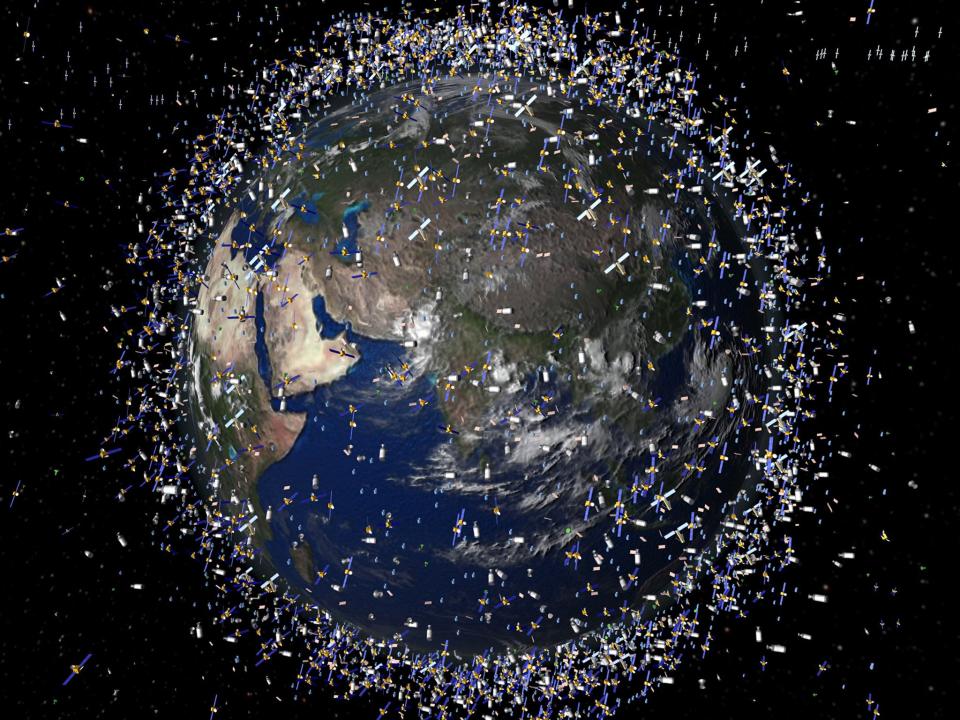Debris from satellite blown up by India still flying around Earth, six weeks after Delhi claimed it should have decayed
Debris from a satellite blown up by India’s defence agency is still spinning around the Earth three months on from the controversial missile test, experts say.
The Indian authorities had pledged that all debris would decay within 45 days of the anti-satellite strike aimed at testing the country’s military capabilities on 27 March.
More than six weeks on from the promised deadline, dozens of pieces of space junk from the satellite have been detected in orbit by specialist trackers.
Jonathan McDowell, astronomer at the Harvard-Smithsonian Centre for Astrophysics, said on Twitter that 41 debris objects were still in orbit. He predicted it would take “a year or so” for the debris to fall to Earth and burn up in the atmosphere.
In April, Nasa chief Jim Bridenstine called India’s destruction of a satellite as “terrible, terrible thing” that could endanger astronauts in the International Space Station (ISS).
Mr Bridenstine said the risk to the risk to the ISS increased by 44 per cent following India’s missile test, but added: “The International Space Station is still safe. If we need to manoeuvre it, we will.”
Nasa identified 400 pieces of orbital debris originally created by the explosion. “If we wreck space, we’re not getting it back,” the US space agency’s chief warned.
India’s foreign ministry played down any risk of debris from its anti-satellite (ASAT) weapons test – dubbed “Mission Shakti” – saying the remnants would “decay and fall back on to the Earth within weeks”.
Updated plot of Indian ASAT debris height versus time. Still 41 tracked debris objects in orbit. pic.twitter.com/MYAQzQY0BX
— Jonathan McDowell (@planet4589)
It came only weeks after India engaged in aerial clashes with Pakistan over the disputed border of Kashmir. “This new technology is not directed against any particular country,” Narendra Modi prime minister said.
Earlier in June, more than two months on from Mission Shakti, the Dutch satellite tracker Dr Marco Langbroek said around half of the 92 larger pieces of debris catalogued after the strike were still in orbit.
He called the ASAT test “reckless” and said the last chunk of debris might survive in orbit until “mid-2021”.
Last week European and UN agencies outlined a joint push for global action on space junk, saying that debris orbiting the earth must be cleaned up as satellites launched by private companies and other new entrants are adding to the crowding.
So-called space debris has been an issue since the Cold War-era space race. But in the absence of solutions, and with countries like China and India having developed the ability to shoot down satellites, the problem has only got worse.

 Yahoo News
Yahoo News 

